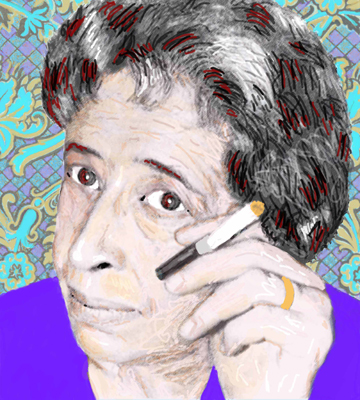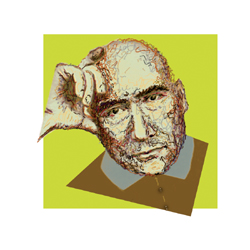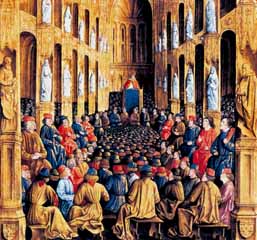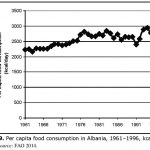From The Web – Longreads – The Best Long-Form Stories On The Web
 Longreads are changing the way people read online.
Longreads are changing the way people read online.
They’re stories that are best enjoyed away from your desk — whether it’s on a daily commute, an airplane, a subway, or your couch. It’s in-depth stories, perfect for the iPad, iPhone or Kindle, and apps like Read It Later, Flipboard and Instapaper.
Longreads posts links to new stories every day — they include long-form journalism, magazine stories from your favorite publications (The New Yorker, Esquire, The Atlantic), short stories, interview transcripts, and even historical documents. (For the record: Longreads are typically more than 1,500 words.)
The Consolation of Philosophy: Hannah Arendt and the Green Movement
 What does it mean to say that one needs to act? In The Human Condition Hannah Arendt insists that we should always distinguish “making” from “acting” when reflecting on the liberating potential of movements such as the Green Movement. Should people make the changes that they desire, or do they act to realize them?
What does it mean to say that one needs to act? In The Human Condition Hannah Arendt insists that we should always distinguish “making” from “acting” when reflecting on the liberating potential of movements such as the Green Movement. Should people make the changes that they desire, or do they act to realize them?
Connected to Arendt’s thought-trains on making and acting is also a separation of “violence” from “power.” What is the meaning of these concepts and what are the differences?
A concrete answer to these timeless questions has been offered by the Green Movement’s chanting, a source of inspiration for the world, and given the geopolitical role of Iran, a tremendously important experiment in democracy, not initiated by an outside force but by men and women themselves acting in concert. The Green Movement has emerged independently, although of course, Iran’s people are also inspired by Western values. Above all, we must humble ourselves before the courage and perseverance of the Iranian protesters. As friends we can request good deeds, as Ibn Sina once suggested, with kindness characterized by advice and not with violence characterized by pointing out disgrace (Isharat va Tanbihat, vol. 4, ninth class, Ch. 23). The Green Movement has many such friends who are with them in spirit. One of these is the political philosopher Hannah Arendt (1906-1975), a German-Jewish thinker who survived World War II and spent a lifetime thinking about action in the face of violence. Her work can be a source of inspiration, a beacon of light, for men and women living in dark times.
Unangetaster Blick – Unverfalschte Sicht
 Für Europäer gibt es viele Arten, den südlich der Sahara gelegenen Teil Afrikas zu betrachten. Die erste und meist unmittelbare, ist die des tragischen Afrikas, die uns dauernd über die Medien erreicht.
Für Europäer gibt es viele Arten, den südlich der Sahara gelegenen Teil Afrikas zu betrachten. Die erste und meist unmittelbare, ist die des tragischen Afrikas, die uns dauernd über die Medien erreicht.
Ob wir wollen oder nicht, die Bilder bleiben in unserer Erinnerung haften: die verkohlten Holzrahmen der Kirche von Eldoret, in der bei Aufständen nach Wahlen in Kenia dreihundert Menschen verbrannten; die Zeltlager voll weinender Kinder im weiten, trockenen Flachland von Darfour; Charles Taylors unbewegte Gesichtszüge während seines Prozesses in Liberia, konfrontiert mit den erschütternden Zeugnissen seiner eigenen Grausamkeiten; das Grinsen des südafrikanischen Präsidenten Zuma, angeklagt wegen Korruption; und auch die Verbissenheit der letzten weißen Bauern, die sich mit ihren schwarzen Angestellten gegen die Willkür Mugabes bewaffnen – und dies alles sind lediglich Ereignisse der letzten paar Monate. Hört es denn nie auf?
Louise Fresco on feeding the whole world (TEDtalks)
Louise Fresco argues that a smart approach to large-scale, industrial farming and food production will feed our planet’s incoming population of nine billion. Only foods like (the scorned) supermarket white bread, she says, will nourish on a global scale. From TedTalks (Ted.com)
Louise Fresco in Rozenberg Quarterly
more at www.louiseofresco.com
Making Books Is Fun!
Back before inkjets, printing was a time-comsuming laborious process, that took teams of people working together to produce just one book. Now days, any crabby person can sit at home and crank out stuff on a blog or even make internet video. This movie will make you happy as you watch others toil for ‘The Man’ under primitive conditions.
Ziptrivia: https://www.youtube.com/channel/
God wil het! – I – Reizen in het spoor van de kruisvaarders
 Na het uiteenvallen van het rijk van Karel de Grote in de tweede helft van de negende eeuw werden Frankrijk en Duitsland van elkaar gescheiden. Grote delen van Europa werden geteisterd door de Noormannen, die landerijen, kerken en kloosters plunderden en daarbij weinig tegenstand ontmoetten.
Na het uiteenvallen van het rijk van Karel de Grote in de tweede helft van de negende eeuw werden Frankrijk en Duitsland van elkaar gescheiden. Grote delen van Europa werden geteisterd door de Noormannen, die landerijen, kerken en kloosters plunderden en daarbij weinig tegenstand ontmoetten.
Binnen de katholieke Kerk was de situatie bedroevend. Pausen waren in een onderlinge strijd verwikkeld en veel geestelijken waren minstens zo intensief bezig met wereldlijke als met kerkelijke zaken. Het celibaat werd nog niet uitgevoerd en pelgrims die uit Rome terug kwamen klaagden steen en been over de wanorde en zedeloosheid die ze aantroffen onder de geestelijken. De gewone middeleeuwer leefde onder de dagelijkse dreiging van ziekte en geweld en halverwege de elfde eeuw brak door misoogsten een enorme hongersnood uit, waardoor de mensen bij massa’s stierven en elkaar – volgens kronieken – zelfs ‘verscheurden en opaten’. Velen zochten naar een mogelijkheid om in verre streken een nieuw leven te beginnen.


